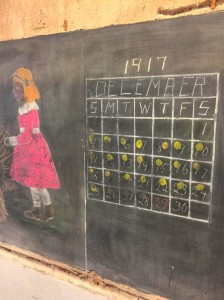I had the pleasure of meeting and speaking with an active duty astronaut just one time. It was an honor and I admit to being a little tongue tied.
I think to fully appreciate the story you need to know a little background first.
I was born in 1959, just as the space race was beginning.
President Kennedy was elected in November 1960, in part, because of a perceived "missile gap" with the Soviet Union. Kennedy keyed part of his presidential campaign on the belief that the United States was losing the space race.
By the time Kennedy took the oath of office, the first seven astronauts had been selected and were training for the upcoming manned space flights of the Mercury program. For me, their names resonate with history:
Alan Shepard; "Gus" Grissom; John Glenn; "Deke" Slayton; Scott Carpenter; Gordon Cooper; and "Wally" Schirra.
They were all military test pilots. They flew the newest, fastest, most dangerous jets before anyone else. Volunteers. Each braver and more dashing than the others. They were the embodiment of the "Right Stuff" before the term was coined. Life magazine and the TV networks lionized these men. And so did I.
In 1961, NASA successfully launched Shepard and Grissom into space. A few months later, Glenn orbited the Earth.
Later, they were joined by the second seven and more after that. Men like Ed White, Neil Armstrong, Jim Lovell, Roger Chaffee, Gene Cernan, John Young and "Buzz" Aldrin.
After the Mercury Program came Gemini and Apollo.
In those days space flight wasn't routine. A space mission was a national event. The television networks covered it live and for hours on end. I enthusiastically watched every moment of mission coverage. I read everything I could get my young hands on. I became the space expert in my school and among my friends.
These men were my heroes. Larger than life. Braver than brave. Testosterone dripped off these men like sweat on a hot August day.
And I bought it all, as did everyone else.
I was nine years old when the astronauts of Apollo Eight read from Genesis as their spacecraft orbited the Moon on Christmas Eve, 1968. I remember it for the awe-inspiring event it was.
Seven months later, I was watching Neil Armstrong ease himself down the lunar lander's ladder onto the dusty surface of our nearest neighbor.
Mission accomplished. And with that, the public turned its collective attention to other matters. Apollo continued but some missions were cancelled.The follow-on was the uninspiring Skylab program, then a gap while the shuttles were built.
The media and the public may have turned a blind eye to the space program but I hadn't.
When I saw that an astronaut would be speaking at the Hanscom Air Show in 1991 or 1992, I made sure I was there. I brought my oldest boy but traffic was a mess and we had to park a mile away.
By the time we found the right tent it was almost over. We walked into the back of the tent while the closing remarks were wafting over the crowd.
We'd missed it.
I was crushed.
It must have shown on my face. We made eye contact. A single finger held aloft told me to wait as the crowd began to stand and disperse.
And in a moment I was shaking hands with an honest to God, flight-tested, space-faring, red-blooded American astronaut. For all the Corvette driving, jet fighter flying, testosterone pumping images, the astronaut standing in front of me was a woman.
And she was as nice as she was smart and brave. She'd seen me rush in just in time to catch the final words of her talk. She'd made sure to catch my eye and ask me to stay. I introduced her to my son and we made small talk for a minute before she had to go.
I don't know her name. I've hunted around the internet, but I can't find any mention of who she was. But it doesn't matter. I met an astronaut and she was great.



